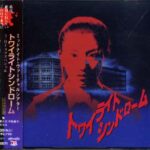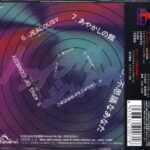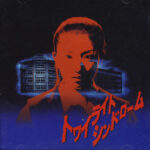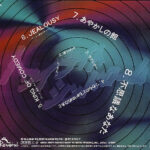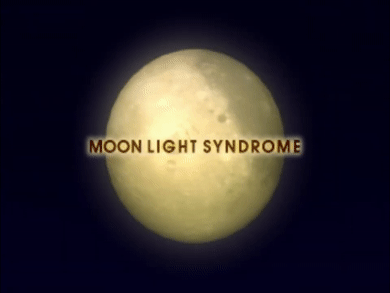
Release date: August 19th 1995
Composer: Masaki Akashio
Catalog number: MRCA-20071
A Drama CD released in parallel with Kikuko Inoue’s Twilight Syndrome radio broadcast in order to promote the release of the Twilight Syndrome games. As such, it was likely based on earlier drafts of the scenario.
Jolovey’s WORDS:

The drama CD came out over half a year before the first Twilight Syndrome game and, like the Kikuko Inoue radio series, differs significantly from the game.
I struggle with understanding some of the lines, along with the lack of visual clues, especially by the main cast when they are excited or panicking, but the general story is that Yukari, Chisato and Mika go to investigate the old school building (they never say the name of the school) when a ghost appears, makes the entrance disappear, and tells them to go through the doors in the building, which will lead them to different worlds, and that they will find the exit somewhere in one of them.
In each chapter, they end up in a different place, often with some sort of narrative already ongoing. As a very brief summary (chapter 1 is the prologue mentioned above and 8 is just the ending song):
2: They find themselves in a mountainous area with a child who refers to Yukari as ‘mama’.
3: A hospital with a Jibakurei (ghost bound to a specific location) who cannot pass on due to a regret she has about not getting to deliver a love letter.
4: Sengoku-era Japan, where some sort of attack or invasion is going on. I can barely understand this chapter out due to all the sound effects and screaming.
5: A theatre, forced to watch an unfunny American-style comedian.
6: A film set, where drama unfolds due to an on-set romance.
7: A strange Meiji-era mansion, where a seemingly kind woman offers them food and shelter.
The girls don’t actually make it back to the old school house by the end. In addition, several of the chapters don’t statedly feature ghosts, instead focusing on strange people creating bizarre and violent incidents.
Character wise, Mika remains the most energetic as well as the one most sympathetic towards ghosts. Yukari is still the leader of the group, and tends to get involved in the most action during the CD. Chisato, on the other hand, doesn’t have any of her spirit medium quirks. All three of the girls are enthusiastic about occult rumors, and there is no indication that Mika had to convince Yukari or Chisato to come with her to the old school building (as is normally the case with the rumors in the game).
Jolovey’s comments on the main cast are especially interesting to me, since they seem to indicate that the idea of having the three girls have wildly different and conflicting personalities was not in the initial drafts, which would tie it to these comments in the Official Guidebook‘s interview:
—It did have the old-fashioned image of “scary stories about a school”, but there are modern, life-sized girls in the game. I think you paid quite a lot of attention to this, but what sort of personalities do the three main characters have?
Source.
Kobayashi: In terms of personality, they’re all completely different. I think that’s maybe symbolic of the youth of today. The game would be boring if they were all Mika, and it wouldn’t be interesting if they were Chisato, either. You see lots of mismatched companions like these three in TV shows and anime protagonists as well. Rather than simply imitating them, we chose to have different characters as a choice to make the game more interesting. One of the selling points is the enjoyment of their conversations, after all.
—Due to my job, I often end up playing games through the eyes of an editor, but I thought that the delivery of the lines was really well done. How did the scenario writer put it all together?
Source.
Suda: Our go-between at a certain advertising company got together about three high school girls. We had them sit at a family restaurant for three, four – no, five – hours, making notes mostly of key things they said. That, and we listened in to the conversations of the three models we were shooting. We couldn’t just use the exact same things we’d heard within the game, though, so we had an expert female member of staff check over the finished scenario. By the way, that staff member coincidentally ended up being called Mika, too (laughs).
Kobayashi: We call it “Mikalish”. It generally feels sort of like something made up by the scenario writer.
The staff member they are referring to is Mika Mishima, who also happened to write the seventh scenario in the game, “The Telephone Call”.
Art Scans
